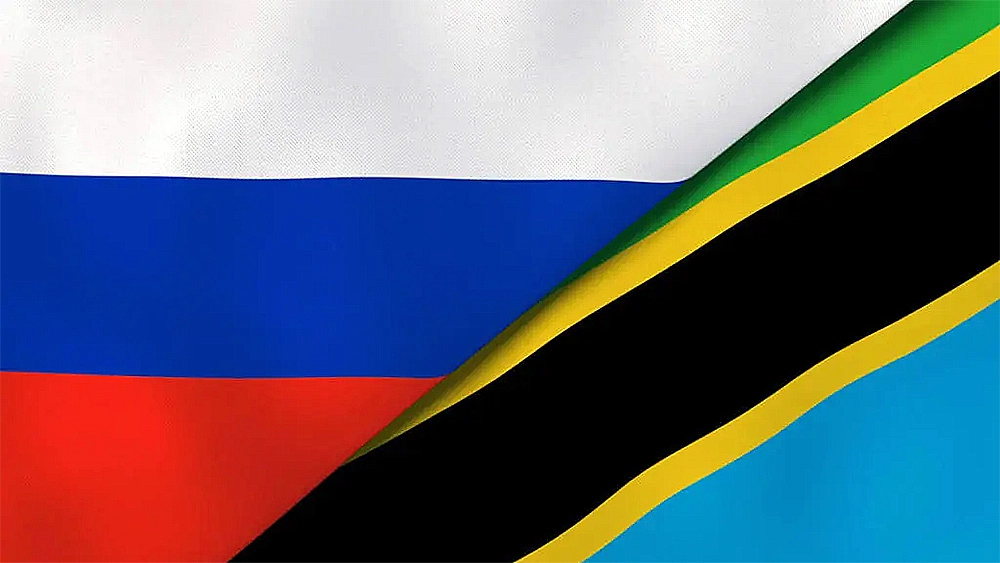Russia wants to develop Tanzanian gas sector & Indian ocean port hubs
Andrey Avetisyan, Russia’s Ambassador to Tanzania, has identified the country as having attractive potential as a trade hub to develop Russian trade with Africa and beyond. The countries east coast can bee easily connected with the existing North-South Transport Corridor, and lies on the Indian Ocean.

Avetisyan said that “Tanzania has access to the Indian Ocean and is located on the routes to the south of the continent or to Southeast Asia. In addition to this favorable geographic location, there is also political stability and the Tanzanian government’s focus on attracting foreign investors. Tanzania is very attractive for us to create a major trade hub to further develop the Russian presence on the continent.”
He pointed out that there are two possible forms of cooperation. One involves the construction of a deep-water port in Bagamoyo, located near the country’s largest city and financial hub of Dar es Salaam. The second is to use the existing ports in Tanga, Mtwara and Dar es Salaam.
Avetisyan said that “All three ports have been recently modernized and are capable of handling vessels of all sizes and drafts. The port facilities include modern quay walls and necessary unloading equipment, and storage facilities are available. Anything related to Tanzania’s ports attracts foreign investors.”
The Ambassador also noted the potential for Joint-Venture agreements with businesses from other regional players. “Against this general background, the UAE has almost monopolized the operational management of the Dar es Salaam port, and is the leading investor, along with China and India. However, these countries maintain partnership and constructive relations with Russia, so in principle there is nothing preventing us from cooperating and sharing in the risks and rewards.”
Another promising aspect of cooperation between Russian and Tanzania is geological exploration, the ambassador said.
“Tanzania has significant energy potential … Local energy resources include hydropower, uranium, natural gas, coal and renewable energy sources. Tanzania is also actively developing the gas industry with about 1.6 trillion cubic meters of potential reserves.”
Currently, Russia’s oil and gas industry have not implemented any projects in Tanzania, but the African country’s shift to a more open policy has already attracted the attention of major Russian companies, as Russia’s shift to new markets continues. Tanzania, for its part, has also shown interest in joining the BRICS.
Tanzania exports to Russia include tobacco substitutes, various fruits, plants for industrial purposes, fodder, coffee, and nuts. Russian exports consist of cereals, fertilizers, mineral fuels, distillation products, paper and cardboard, and aluminum.
In July 2023, it was announced that Rosatom would begin pilot mining and processing of uranium ore in 2023-2025. So far, about 85% of all work has been completed. For the moment, it is planned to extract five tons of ‘yellowcake’ – a type of uranium concentrate powder obtained from leach solutions, in an intermediate step in the processing of uranium ores. It is a step in the processing of uranium after it has been mined but before fuel fabrication or uranium enrichment. The intent is to have an annual capacity of 3,000 tons.
During the 2023 Russia-Africa Summit Tanzania was represented by a large delegation that signed multiple deals with the Russian side. Most of the agreements concern the agricultural, food, and mining industries, which are of particular interest to Tanzania. For example, the two sides are working on boosting the cashew industry and Tanzania believes that a significant part of its cashew exports could go to Russia. In particular, four Russian companies – SEIES, Unigreen Energy, Agrovent, and TD Glass NN Expo LLC – which specialize in agriculture and renewables, have all pledged to invest in Tanzania.
The two sides also want to boost tourism relations amid the Western sanctions on Russia and the latter’s push to re-orient economically toward Asia and Africa. More specifically, a bilateral agreement is planned to be signed in 2024, which will essentially become the basis for the renewal of direct flights between Russia and Tanzania.
Current bilateral trade is running at about US$450 million, and is centered (81%) mostly on agriculture. However, with geopolitical changes and Tanzania’s gas reserves, this could rapidly change, with Russia assisting the country to become a net gas exporter – a key issue when examining Tanzania’s future development prospects and Russia’s vast industry experience. Given Tanzania’s Uranium deposits, the development of its nuclear power industry may also be attractive.
Tanzania’s 2024 GDP growth is expected to be about 5.1%. The country is a member of the East African Community (EAC) and the African Continental Free Agreement (AfCFTA).


 Other topics:
Other topics:
 REAB Services
REAB Services

 News
News
 Useful tip
Useful tip
